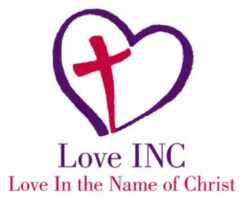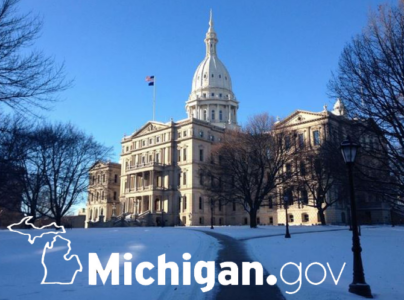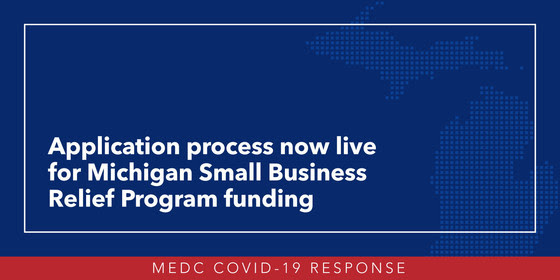Contact: Bob Wheaton, 517-241-2112; [email protected]
LANSING, MICH. — Approximately 350,000 Michigan families will have access to additional food assistance benefits as a response to the COVID-19 outbreak and about 27,000 individuals will be temporarily exempt from federal work requirements, Gov. Gretchen Whitmer and the Michigan Department of Health and Human Services (MDHHS) announced today.
“No Michigander should have to worry about putting food on the table for themselves and their families, especially during a global pandemic,” said Gov. Whitmer. “Now, tens of thousands of Michiganders will be able to access the food they need while we work to slow the spread of COVID-19. As this crisis continues, I will continue to work with all of my partners across state government to ensure support for Michigan families.”
Nearly 1.2 million people in Michigan received federal SNAP benefits through the state’s Food Assistance Program as of February.
Additional Food Assistance Benefits
Households eligible for Food Assistance Program benefits will receive additional benefits in March and April to bring all current SNAP cases to the maximum monthly allowance for that group size. This change only applies to customers not currently receiving the maximum benefit amount. The 350,000 households that receive increased benefits represent more than 55 percent of the nearly 629,000 Michigan households that received food assistance in February. The remaining households already receive the maximum benefit.
Eligible clients will see additional food assistance benefits on their Bridge Card by Monday, March 30. Below is the maximum allowable benefit for SNAP customers based on their respective household size:
- One person: $194.
- Two persons: $355.
- Three persons: $509.
- Four persons: $646.
- Five persons: $768.
- Six persons: $921.
- Seven persons: $1,018.
- Eight persons: $1,164.
Eligible families do not need to re-apply to receive the additional benefits.
“Families need a hand putting food on the table during this crisis,” said MDHHS Director Robert Gordon. “It’s our job to offer that support as quickly and compassionately as we can. MDHHS is cutting red tape, eliminating requirements that have no place today, and expanding support where we can. Our staff are doing an incredible job stepping up to the challenge.”
The federal government is providing additional funding to states for food assistance under House Resolution 6201, the Families First Coronavirus Response Act.
Temporary Waiver of SNAP Work Requirements for Able-Bodied Adults Without Dependents
MDHHS received approval from the U.S. Department of Agriculture (USDA) to temporarily suspend federal work requirements affecting close to 27,000 able-bodied adults without dependents to reduce the financial impact of COVID-19. No action is needed for eligible adults to be temporarily exempt from the requirements. About 143,000 additional able-bodied adults are already exempt from the requirement.
Effective Tuesday, April 1, the three-month time limit for failing to meet work requirements will be lifted for able-bodied adults ages 18 through 49, who have no minor-age children, and are able to work but are not working 80 hours a month. Without the waiver due to COVID-19, they could only receive food assistance benefits for up to three months within a 36-month period without meeting work requirements.
The suspension of the time limit will continue through the end of the month following the month in which the COVID-19 public health emergency declaration is lifted by the secretary of U.S. Health and Human Services. MDHHS will provide updates when it receives notice of additional changes to the work requirements.
People who receive food assistance can check their benefits balance on their Michigan Bridge Card by going online to www.michigan.gov/mibridges or by contacting a consumer service representative toll-free at 888-678-8914.
Customer service is available 24 hours a day, 7 days a week. Spanish and Arabic service is available. If you are deaf, deafblind or hard of hearing or speech-impaired, call the Michigan Relay Center at 7-1-1.
Information around the COVID-19 outbreak is changing rapidly. The latest information is available at Michigan.gov/Coronavirus and CDC.gov/Coronavirus.




